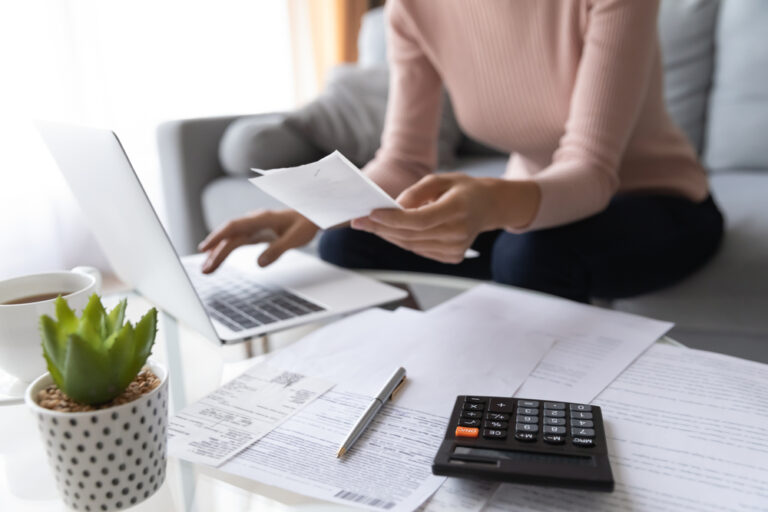If you’re buying a home for the first time, you’ll need to go through the conveyancing process.
In this guide, we’ll explain how conveyancing works in England, run through what you can expect and break down the costs.
What is conveyancing?
Conveyancing is the legal work involved when a property’s ownership is transferred from one person to another.
Conveyancing starts once you have an offer accepted on a property and the process is completed once contracts are signed and all money has been transferred.
What does a property conveyancer do?
Property conveyancers are usually solicitors who act for buyers and sellers in property transactions.
However, buyers and sellers can also choose to use a specialist conveyancer, who isn’t a solicitor but is licensed by the Council for Licensed Conveyancers (CLC).
Can I conveyance my own property?
While it’s not illegal for a buyer or seller to do their own conveyancing work in England, the process is complicated, and DIY legal work would be a huge risk.
For example, it’s more likely a buyer or seller would miss a potentially expensive legal issue such as a boundary dispute or planning permission wrangle when completing searches.
In complex property transactions, specific legal knowledge may also be required, while most mortgage lenders will insist on a buyer using a professional conveyancer to protect their own interests.
The conveyancing process
The conveyancing process can vary depending on the complexity of a specific property transaction.
However, this is the basic process you can expect…
1. Request information pack
The buyer’s solicitor will contact the seller’s solicitor to request a pack of information relating to the sales contract
At this stage, the buyer will have their offer on a property accepted, their mortgage approved, and the lender’s valuation carried out
The buyer should also have a property survey carried out at this point
2. Local searches
- The solicitor will request a copy of the buyer’s and seller’s (if they’re moving to a new property) mortgage offers
- Local authority searches will be carried out at this stage
3. Sign contracts
- The solicitor will analyse the information included in the contract pack, as well as local authority search results and the buyer and seller’s mortgage offers
- At this point, solicitors will start to discuss potential completion dates with the buyer and seller
- The buyer and seller will sign the final draft of the contract at this point and return it to each solicitor.
4. Deposit transfer
- The buyer’s solicitor will confirm to the seller’s solicitor that the buyer is happy to proceed with exchange of contracts
- At this point, the buyer will send their deposit to their solicitor ready for exchange of contracts
5. Exchange of contracts
- Both solicitor will exchange contracts, making the sale legally binding
- At this point, the buyer’s solicitor will send their deposit to the seller’s solicitor.
6. Pre-completion
- Both solicitors will supply a completion statement to the buyer and seller and carry out any other priority searches.
- At this point, the buyer (and seller if they’re purchasing another property) should arrange a buildings insurance policy.
- The buyer’s solicitor will prepare the transfer deed, which is signed by the buyer at this point.
- Once signed, the buyer’s solicitor will send the signed transfer deed to the seller’s solicitor and request funds from the buyer’s mortgage lender.
7. Completion
- The buyer’s solicitor will transfer all remaining finance relating to the purchase to the seller’s solicitor.
- The buyer’s solicitor should receive title deeds, transfer deeds and proof that any outstanding mortgages have been redeemed.
- Once all money has been transferred and information confirmed, the buyer will receive the keys to their new property
8. Post completion
- The buyer’s solicitor will send the transfer deed and stamp duty to the stamping office and forward documents to the Land Registry to register the buyer’s ownership of the property.
- The solicitor for the buyer will receive new title deeds from the Land Registry and forward them to the buyer’s mortgage lender.
How long does conveyancing take?
On average, the conveyancing process takes between eight and 12 weeks.
However, this can be longer or sometimes shorter, depending on the complexity of the transaction and any potential issues along the way.
Conveyancing costs explained
Conveyancing costs can vary hugely, depending on:
- Whether you use a solicitor or conveyancer.
- The price of the property being purchased, sold, or remortgaged.
A breakdown of the costs for conveyancing could be:
1. The fee for a solicitor’s time
Some solicitors or conveyancers will charge a fixed fee, while others charge by the hour.
The most common way conveyancers charge for their time is on a sliding scale of prices, depending on the purchase or selling price of the property.
Leasehold property transactions (for example flats and apartments) are generally more complex than freehold purchases with more paperwork, so fees can be higher.
Conveyancing fees for properties being purchased through Shared Ownership or Help to Buy equity loans can also be higher.
2. Conveyancer costs
Conveyancers and solicitor will pass on some of their costs to buyers and sellers, which are known as disbursements.
Common disbursements for buyers include:
- Bankruptcy searches – £2 to £4
- Local authority searches – £100 to £200
- Land Registry fees – £4 to £8
- ID verification – £2 to £18
- Environmental searches – £30 to £35
- Drainage search – £30 to £40
- Chancel repair liability search – £10
- Electronic funds transfer fee – £25 to £45
- Mortgage handling fee – £60 to £80
- Final HMLR search fee – £3 to £7
- Land registration fee – £20 to £910




